We have been created with enquiring minds. Mankind has constantly looked for ways to improve the quality of life and has made steady progress in inventions and knowledge. This is largely because people wrote down their discoveries and passed this on to others. Different cultures would adapt and improve on this. This quality of scholarship and a love and passion for books, writing, reading, literacy and academia was also embedded within Muslim culture from the very beginning. In this article we explore literacy and the position of books and reading within the Muslim community.
Literary Tradition
The Prophet sallallahu alaihi wa sallam would use scribes to note down the revelation of the Noble Quran. Among them were the like of Abu Bakr, Umar, Uthmaan, Ali, Khalid ibn Saeed radhiallahu anhum and others. They were also given the task of writing his letters and responding to his correspondence as well. Some were instructed to learn the Syriac language so that they could respond in that language when the need arose. Others would write down the records of Zakaat.
After the Battle of Badr, the Quraishi fighters who were captured were set free on paying a ransom. Those who were literate were set free after teaching 10 Muslim children each how to read and write. The institution of reading, writing and literacy was thus a pivotal part of early Muslim society.
This tradition has continued under all the Muslim empires that followed. The Umayyads would encourage the art of reading and books. By the time of the Abbasids literacy was flourishing. The Baitul Hikmah (House of Wisdom) was established in Baghdad. Also known as the Grand Library of Baghdad, it was set up in the late 700’s. It was destroyed during the Mongol invasion of 1258. This institution spearheaded the translation movement where texts in Greek, Latin, Syriac, Persian and other languages were translated into Arabic. This fed scientific research for centuries in the West.
Scholarship flourished and the works of other cultures were expanded on in the fields of medicine, alchemy, physics, maths and astrology to name but a few. Building on this, Muslims would go on to even invent new categories.
Paper Making
In 751 the Battle of Talas in central Asia (around modern-day Kazakhstan/Kyrgyzstan) took place. It was not a particularly noteworthy battle between the Abbasid forces and their allies from the Tibetan Empire ranged against the Chinese Tang Dynasty. What was significant was that the art of paper making was learnt by the Muslims from Chinese captured in this battle. The first paper mill was built in Baghdad in 794. Paper replaced papyrus in the Islamic world and cheap writing material was now available. Muslims went on to invent a way to make a thicker sheet of paper and this transformed paper making from an art to a major industry.
Muslims produced an astounding amount of literary works through the ages. They delved into every field of knowledge available.
Fiction
- The Kalilah wa Dimnah is a collection of fables translated by Ibn al Muqaffa from Indian sources. It went on to influence many tales in a similar strain.
- Kitab al Hayawaan was a book that contained many Arabic proverbs.
- The Arabian Nights collection of stories including those of Aladdin, Sinbad and Ali Baba still influence modern story telling in the West.
- The genre of Maqamahs is exemplified by the one of Al Hariri. This was the closest concept to the Western style of short stories. It tells of the adventures of the fictional Abu Zaid al Saruji with language tools such as assonance, alliteration, and palindromes. It was imitated in Hebrew later.
The Sciences
Ground-breaking literary works in numerous fields were produced by Muslims:
- In Philosophy Ibn Sina’s Canon of Medicine became a standard medical text at universities in the West and remained in use until 1650, nearly 600 years later.
- The Arabic translations of Greek philosophical works of Plato, Aristotle and Socrates preserved these works for even the modern West.
- Al Idrisi wrote on geography and travel. Muslim travellers kept notes on their travels and the travelogues of Ibn Battuta or Ibn Jubair still making for fascinating reading.
- In history, Ibn Khaldun’s Muqaddimah attempted to analyse the trends in history and is still held in high esteem.
- Works on spirituality such as the Mathnawi of Jalaluddin Rumi rahimahullah heavily influenced even Western concepts in this regard.
This is but a small taste of the astounding amount of literary works produced by Muslim scholars.
Love for Books
Muslim scholars loved books and all the associated arts.
- Isam ibn Yusuf al Balakhi once bought a pen for a Dinar (gold coin) in order to write down immediately what he heard.
- Muhammad ibn Salaam al Bikandi, the Sheikh of Imam Bukhari rahimahullah, was a young student in the class of his teacher who was narrating. His pen broke so he announced that he would buy a pen for a Dinar to continue writing without interruption.
- Yahya Ibn Maeen rahimahullah started writing Hadith at the age of 10. He stated that he had written one million Hadith by hand, including writing some up to 50 times to learn them. He left behind 114 containers of books and four larger crates.
- Al Jahiz used to read any book he found from cover to cover no matter the topic. He would rent the shops of paper sellers to the spend the nights there on order to read the books they stored.
- Many were the scholars such as Al Fath ibn Khaqaan who would be constantly reading.
- Ibn Jarir rahimahullah wrote 40 pages a day for 40 years totalling an output of 358,000 pages in his lifetime.
- Ismail ibn Ishaq al Qadi was never seen except that he either had a book in his hand or was looking through the books searching for one to read or was dusting the books.
- Scholars like Khatib al Baghdadi would be found reading and walking. Some like Ibn al Khayyat would be knocked down by horses many times while walking the streets in this manner. Tha’lab died of injuries sustained in this way.
- Muhammad ibn Hassan al Shaibani rahimahullah would read the whole night. When he would get bored with one book, he would turn to another.
Benefits of Reading
- It exercises the brain. This is especially found when you need to remember plots and characters. It also improves memory function. As a result, it slows down age-related cognitive decline such as Alzheimer’s, dementia, and memory loss. A Rush University study found that brain activity is important for good brain health in old age.
- It reduces stress. A University of Sussex study found that there was a 68% reduction in stress levels by reading for just 6 minutes. You need to concentrate when reading and the distraction this provides eases the tensions in the muscles and the heart. The University of Essex study found that 30 minutes of reading lowered blood pressure and the heart rate.
- It improves vocabulary. Children who regularly read books at an early age develop larger vocabularies in the long run. Teens who read gain 26% more words than those who never read. (Centre for Longitudinal Studies) 11,000 14-year-olds were observed in this study. Teens from book loving homes knew 42% more words than those who grew up with less books.
- It can improve the quality of your sleep and help with insomnia. 42% of people who made reading a part of the bedtime routine felt an improvement in sleep quality. We are relying on increased screen time to get through the day. Picking up a book before bed tells the brain it is time to relax.
- Reading can boost your spirits. 76% of people surveyed in a UK study said that reading helped in making them feel good. The Greek historian Diodorus Siculus says that there was a phrase above the entrance to the royal chamber where books were stored by Rameses II which read, “The House of Healing for the Soul.” (circa 60-30 BC)
- Bibliotherapy is a field that refers to book or reading therapy together with writing therapy. As far back as 1272 reading the Noble Quran was prescribed reading at Al Mansoor Hospital in Cairo as part of the medical treatment. By 1900 libraries were an important part of European psychiatric institutes. During World War I librarians were stationed at British military hospitals where they dispensed books to patients in what came to be known as bibliotherapy.
- Nonfiction teaches us facts, general knowledge and expands our thought process and analytical reasoning. It gives us more to speak about in social gatherings than the usual politics and gossip!
Muslims flourished when they studied, read widely, and wrote down their knowledge and discoveries. In a world where the book is fast falling out of favour in exchange for audio visual entertainment, and short social media posts here and there, we need to urgently encourage the next generation to fall in love with reading.
How to Encourage Kids to Read
- Read to kids daily.
- Let them see you reading. Things like recipes, instructions, maps and books.
- Get them a library card. I fondly remember the Saturday mornings spent browsing the local library in search of new delights or old favourites. Library cards are our magic carpets to amazing destinations. We are fortunate that cities in South Africa have so many established libraries. Sadly, many a kid has not seen the inside of one. It also seems that libraries themselves are keen to hasten the death of the book with ever growing collections of DVDs and limited operating hours.
- Keep a collection of books of interest where your kids can get to it. The house bookshelf is one of the most critical tools in fostering reading. Let the kids make their discoveries themselves.
Some Caution
As with everything else, there is material that one needs to stay away from, and which should not be read. These include material that push a particular detrimental agenda such as homosexuality or encourage the erosion of morality. Blasphemous books that actively attack the cherished beliefs of Islam such as the Satanic Verses should also be shunned.
You will, in your reading journey, find bigoted, misleading, and factually incorrect material. Bad books are like bad company, and they can influence you adversely. Read judiciously but don’t be afraid to read widely. When you read anything that gives you cause to doubt, clear up these by consulting with learned Ulama and scholars.
Recommendations
What we should be reading is the Noble Quran and the sciences related to it, Hadith, history as well as the many good fiction and nonfiction out there. Find a balance of serious and light-hearted reading. People ask for recommended reading, and we list some titles to get you going. But you go out and discover the wonderful world of the written world out there for yourself.
- A Talib’s Tale: The Life and Times of a Pashtoon Englishman by John Butt. An account of a man who found Islam in Pakistan and Afghanistan.
- One Thousand Roads to Mecca: Ten Centuries of Travelers Writing about the Muslim Pilgrimage. A collection of travel journals edited by Michael Wolf. Covering over 20 accounts made over 10 centuries, this work shows many sides of the Hajj.
- The Sabres of Paradise by Lesley Blanch. During the Great Caucasus War of 1834-1859, the tribes of Daghestan and Chechnya united under the leadership of Muslim chieftain Imam Shamiel, the Lion of Daghestan, and held at bay the invading Russian army for nearly 25 years. Lesley Blanch vividly recounts the epic story of their heroic struggle for freedom and the life of a man still legendary in the Caucasus.
- Monk of Mokha by Dave Eggers. The story of a young Yemeni American man who dreams of resurrecting the ancient art of Yemeni coffee but finds himself trapped in Sana’a by civil war. The book weaves together the history of coffee, the Yemeni civil war, and the journey of a young man.
Where to start reading? Start small. Imam Bahauddin al Halabi said, “Do a little regularly. It will eventually add up to an amazing amount, for what are rivers but a gathering of many small drops of water.” Let us go back to being a nation that reads and loves books. Tap into the world of knowledge that’s awaiting out there.


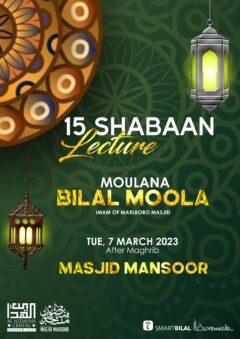

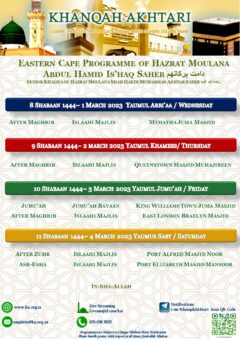
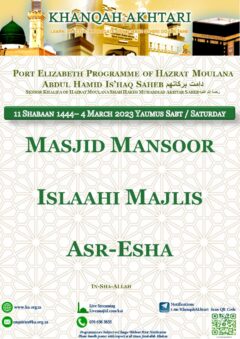
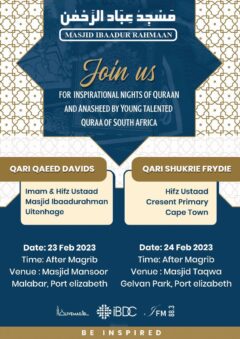
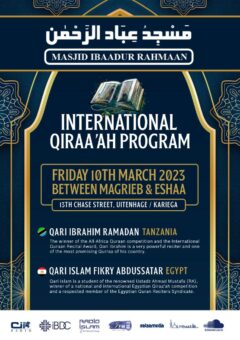



COMMENTS